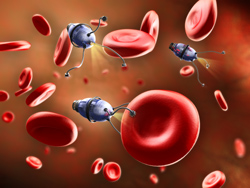Is nano-medicine good for you?
Nano-medicine is a fascinating field that promises medical treatment based on nanotechnology. It involves very tiny particles used in medically-related materials, medications and biosensors, as well as molecular nanotechnology. However, this technology is not without its unknowns and risks. This is why a safe, responsible approach is needed to develop nano-medical research in Europe. To address this challenge a project called the Nanomed round table brought together expert stakeholders from across Europe to probe different topics in nano-medicine. The discussions revealed that patients are open to nano-medicine and want to know more about it from reliable sources. The European Commission, national governments, and trade and research associations all have a role to play in ensuring dialogue with patients. Ethical and societal aspects were also discussed at the round table, outlining the need to inform all stakeholders on the philosophical and social aspects of nano-medicine and its purpose. These stakeholders included nano-medical researchers, physicians, patients, and policy-makers. The round table identified the need for reliable data to predict the economic impact of nano-medicine on healthcare costs and benefits, as well as on market growth. This enables the European Medicines Agency to take strategic decisions early on. It also allows national governments to manage finances more efficiently. In addition, the project concluded that a proactive regulatory system is required for better coordination and harmonisation of regulatory procedures. This would involve dialogue with users and stakeholders at early stages of research and developing, and account for the economic cost implications of regulation. The project has outlined who is best fit to play this role. Lastly, the round table has identified 45 different types of products based on nano-medicine that are already on the market. The policy recommendations emerging from this exercise can serve as a timely and substantial response to the need for genuine engagement and involvement of all the key stakeholders (public and private) in the nano-medical field. Now that nano-medicine has become a reality, the results of this project will prepare the groundwork for optimised, collective decision making at the European level.







